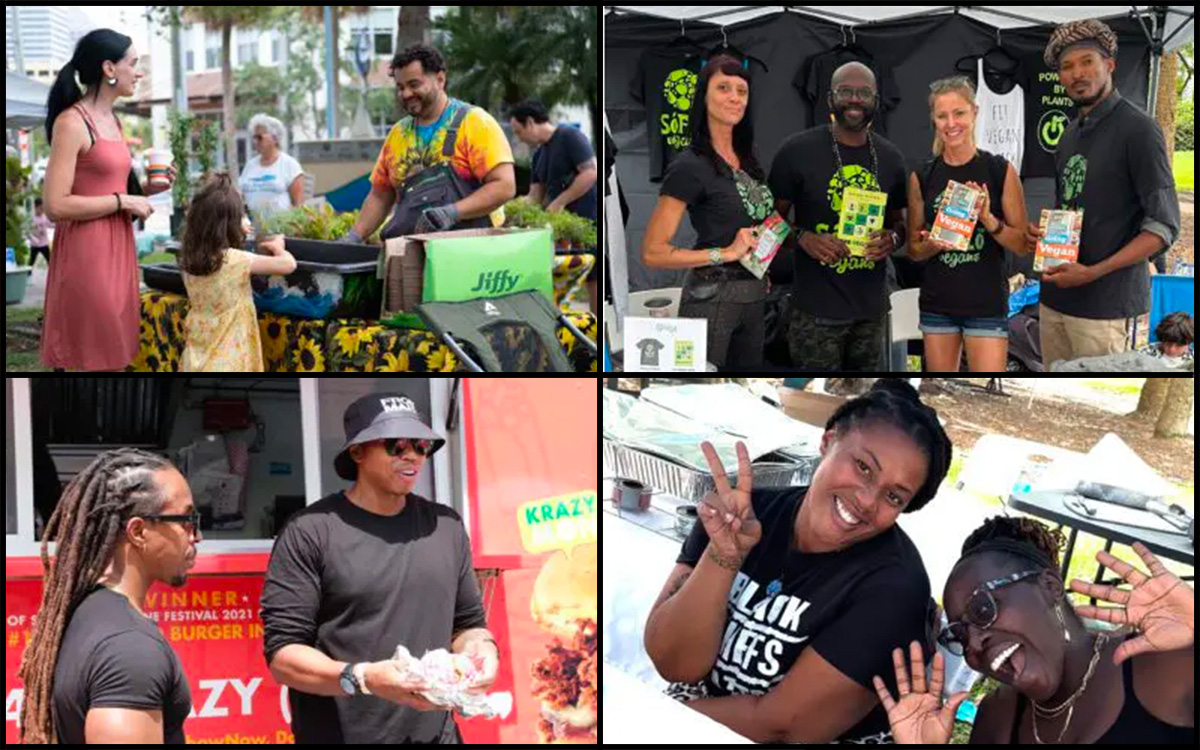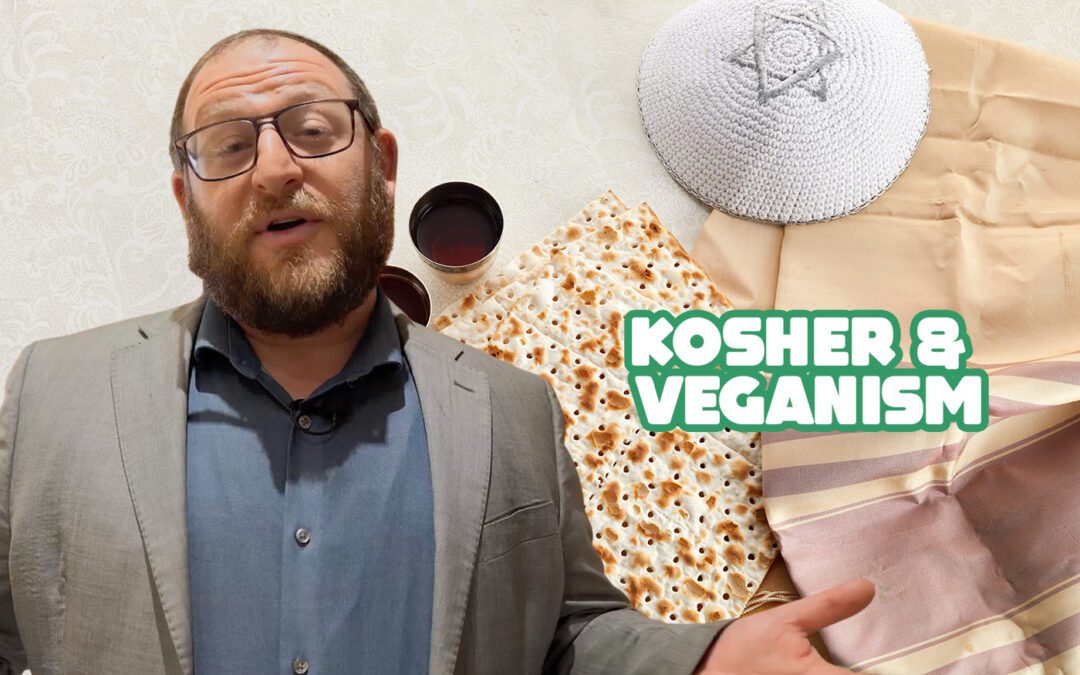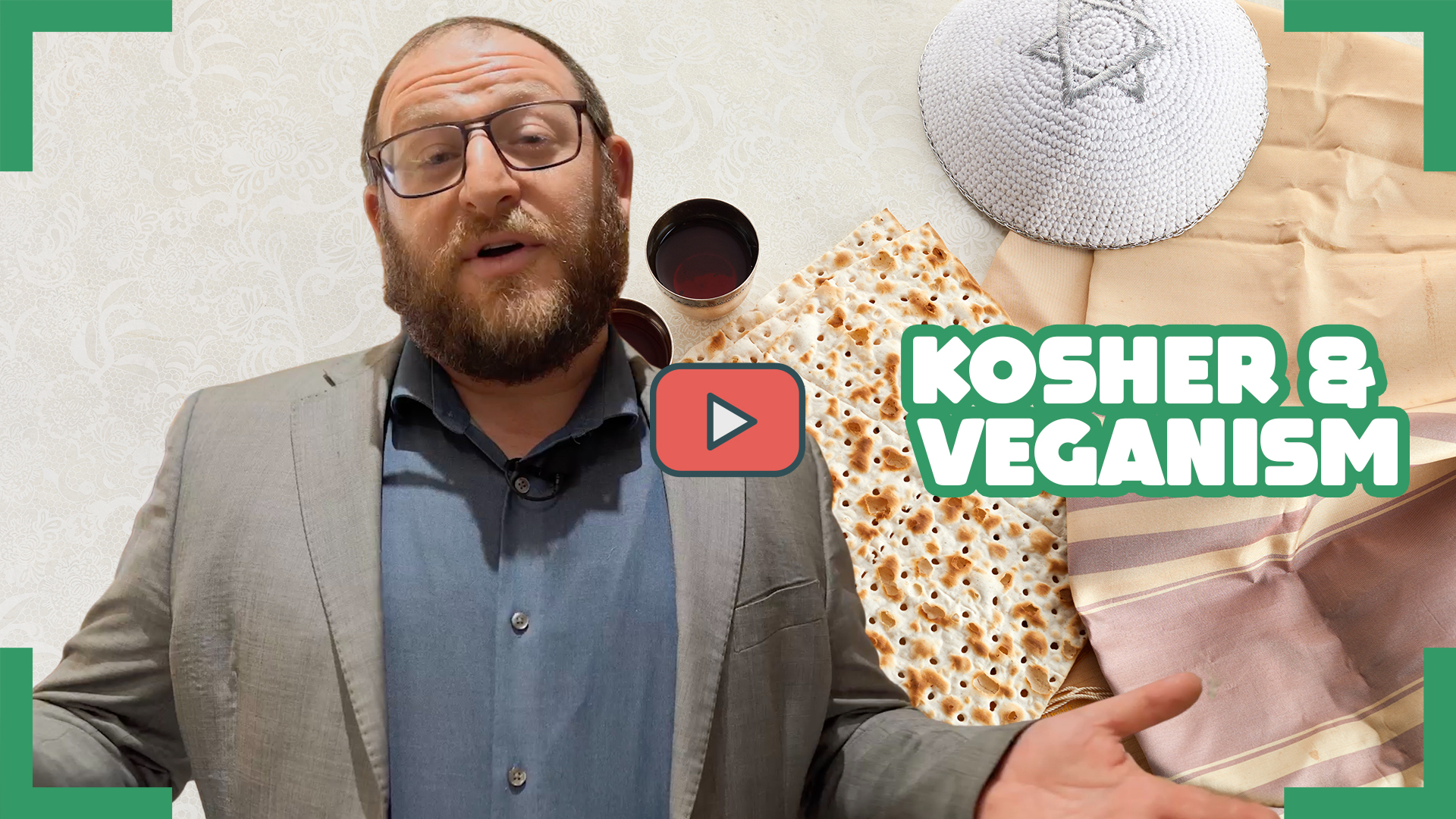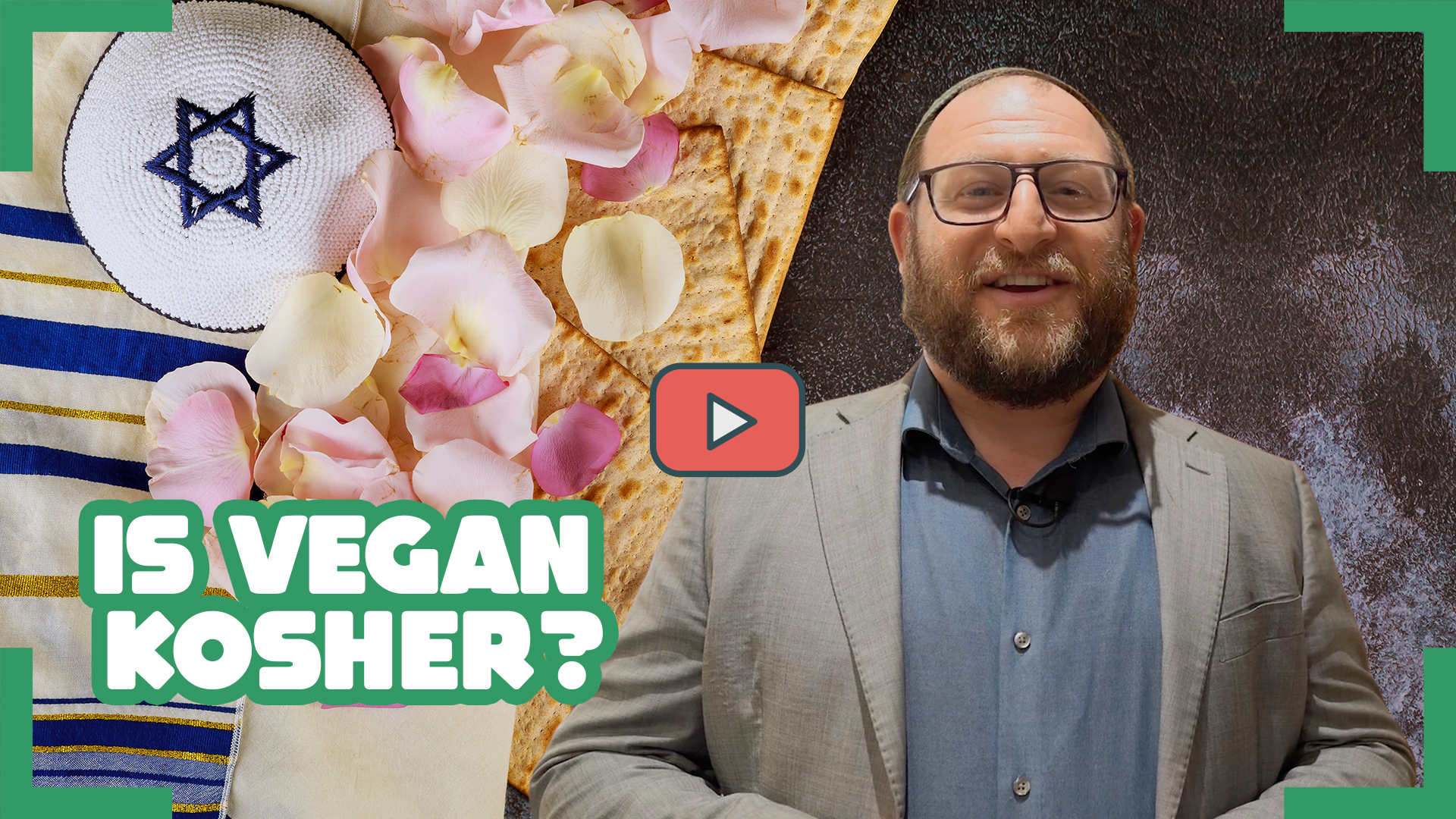Is vegan kosher? Do vegan establishments actually need kosher supervision? This is an increasingly common question in Jewish circles, and vegan establishments have started to actively inquire about becoming kosher certified as well over the past several years. Kosher Culture Certification is creating a clear path for vegan establishments to become kosher certified and enter the multi-billion dollar kosher market, which is only growing, especially in South Florida, the fastest growing Jewish area in North America.
Let’s first address the definition of kosher. The short answer is, it’s complicated! There are thousands of intricate kosher laws in Jewish Law, and though many of them pertain to animal-based products, there are several laws regarding plant-based food items as well. Kosher is a spiritual status, and not a hygienic definition, although most kosher products will have a high standard of hygiene, health, and safety by default. The Torah (Hebrew Bible) requires all Jewish People to eat only kosher food, and it is a key part of Jewish identity. You are, in fact, what you eat. For the vegan community, this concept is very familiar – being selective about what we eat is rooted in a value system, whether it is health, simplicity, animal rights, environmentalism or other values that are embraced in the vegan community. The common thread between kosher and vegan is that they are both a value-based diet.
A kosher establishment, vegan, dairy or meat, needs to be supervised on two levels: ingredients and process of food preparation. First, every single ingredient must be kosher. Some items require a special kosher certificate or have a credible kosher certification symbol on them (such as OU, OK, CRC and hundreds of other certifications that exist worldwide), while other foods are kosher without requiring special certification. As a rule, most plant-based food products or ingredients in their natural state do not require certification. Fruits, vegetables, and most spices fall under this category. They are kosher as is, but require a special process of ensuring they are bug-free, which will be expanded upon later in the article. A Jewish person or a restaurant can purchase a fresh carrot, pear, or ground pepper from any store or supplier without having to ask for a kosher symbol or certificate on the package. The same rule applies for all 100% squeezed fruit and vegetable juices, if there are no added ingredients.
Second, the kosher certification agency will look at the process of food preparation. If 100% kosher food is processed in a facility where non-kosher food is processed or was processed without an appropriate kosher cleaning, the final product might not be kosher certified. The process matters, not only the ingredients. There are many complicated kosher laws regarding the kosher status of ovens, dishes, cookery, knives and all kitchen equipment, and that is the main reason any vegan establishment will require proper kosher certification in order to proclaim their business as fully kosher. The fundamental concept of how the process can make kosher ingredients into non-kosher food is the transference of “taste”, or properties. The different pieces of equipment retain the taste of the food they prepare, unless they go through a specific kosher cleaning process, depending on what material the equipment is made of. For example, if an oven heats up non-kosher cheese, and then heats up a vegan dish, the vegan dish takes on the “taste” or properties of the previous item that was heated up, and effectively is not kosher. This same principle applies to all food preparations involving heat or cooking, and all prep involving oily or fatty foods. If a knife cut into non-kosher cheese, and then cut up a vegan salad, the salad would be designated as not kosher. Therefore, all food equipment will need to be kosher cleaned or be bought as a dedicated kosher set, in order for an establishment to receive kosher status.
The specific kosher laws that pertain to vegan establishments are mainly two, and a third for an establishment owned by a Jewish owner. The issues are bugs, who lights the fire, and opening on the Jewish Shabbat (Sabbath) and Jewish Holidays.
Bugs
Jewish Law prohibits eating bugs. The myth is that pork is the most non-kosher food that can be eaten. The truth is that eating a fly has several prohibitions within Jewish Law, and is, on a spiritual level, worse than eating ham. Considering that, checking for bugs is a very important aspect of kosher certification for any establishment. Vegan establishments that have green leafy vegetables as their main staple or as a significant ingredient, will have to check for bugs daily with a certified kosher supervisor.
The truth is that there is no conflict of interest here. Vegan establishment owners don’t want bugs in their food either. It’s just bad for business. However, there is a level of scrutiny that kosher standards have for bug checking that is above and beyond washing the food thoroughly. Green leafy vegetables, even if triple-washed, need to be soaked in salt water for several minutes, checked under a strong light or even a light-box, and some require to be checked on a white cloth, where the bugs will show up. The Orthodox Union, the world’s premier kosher certification agency, has a detailed list of produce that requires checking and what procedure is required.
The standards of checking may vary depending on the origin of the produce, if it is fresh or frozen, and on the kosher agency. The link will give you an idea of what steps are required for ensuring that your food will be bug free and kosher. At first it may seem daunting, but it becomes routine after getting into the rhythm of bug checking with your staff. All Jewish kosher households eat produce, and there are many kosher restaurants around the world that serve broccoli and spinach. Checking for bugs is just part of any kosher diet routine.
Organic produce is guaranteed to have many bugs in it, and is required to be checked. Organic is preferable to many, for as my wife likes to say – “if bugs won’t eat the produce, then why should we?”. Our Kosher Culture supervisors are trained to find bugs even in organic produce, and make the process seamless. In summary, while checking for bugs is a kosher requirement for certification, it is a straightforward process that should not be a deterrent for establishments who want to become kosher certified.
Cooking & Lighting the Fire
The second kosher requirement for certification is who turns on the fire. There is a requirement that all kosher food be cooked by someone Jewish. However, this requirement is only for foods that are main staples for a meal and food that cannot be eaten raw. In other words, if an establishment cooks carrots or makes patties out of vegetables that could be eaten raw, anyone can turn on the fire from a Jewish Law perspective. Vegan foods that would require a Jewish person to turn on the fire would be rice, potatoes, quinoa, any vegan patties that cannot be eaten raw, and other food items that would fit this criteria. Pastries or confectionaries do not fall under this category.
For establishments that operate on a smaller scale, there is a loophole of using a pilot light. If the kosher supervisor turns on a pilot light, then the workers can then light the rest of the stovetop and other grills that use gas from that pilot light. Electric ovens or deep fryers will need to be turned on separately.
A Jewish-Owned Business – Opening on Shabbat (The Sabbath)
One of the main aspects of Jewish identity and Jewish Law is observing the Sabbath. The Sabbath begins on Friday night and extends to Saturday night at nightfall. It is imperative that everyone Jewish observe the Sabbath. The reality is that many Jews either only partially observe the Sabbath or do not observe the Sabbath at all. Jewish Law prohibits a Jewish person from owning a business that operates on the Sabbath, and this affects the laws of kosher certification as well.
There are two solutions for the issue of a vegan establishment owned by a Jewish proprietor becoming kosher certified. First, they can make a decision to close on Shabbat, effectively from Friday late afternoon, and on all Jewish holidays when work is prohibited. That is not a light decision for many because their establishment is either in a mall where the business is contractually obligated to stay open 7 days a week, or because Friday night and Saturday are when many people are not working and go out to eat. A second solution can address those issues – having a non-Jewish business partner. If there is a partnership between a Jewish and non-Jewish owner, then the income from the business on Shabbat and holidays would contractually belong to the non-Jewish owner, and then the establishment is able to retain their kosher certification status.
Motivations for Establishments to Become Kosher Certified
The Kosher market worldwide is currently valued at $42 Billion USD, and projected to grow to $72 Billion USD by 2033. South Florida is one of the largest growing Jewish geographical areas, and demand for kosher establishments has never been higher. For most establishments, deciding to be kosher certified is purely a financial decision. The vegan market is largely untapped, and Kosher Culture has an objective to create a clear path for kosher certification for South Florida’s vegan establishments to suit each business’s needs and open them up to the kosher market.
There are some businesses that want to offer certification as a gesture of good business practice. Mainly, they want to be inclusive to all customers and therefore would want to offer Kosher certification in addition to being vegan, gluten free, or any other accommodations made to accommodate the wider community. This may be a secondary need that speaks to some businesses more than others, but it is an important consideration for vegan establishments who want to champion inclusivity.
How Much does Kosher Certification Cost?
The breakdown of kosher certification includes three main costs:
- The Licensing Fee. There is a set licensing fee, which offers the company the Kosher Culture certificate, and all services from Rabbi Ariel Tal and the Kosher Culture administrative team. The fee depends on the size of the establishment and is a fixed cost per annum. This includes, but is not limited to, answering all kosher questions from clients and business partners, and promotion of the establishment on all Kosher Culture social media and other platforms. Many of the families affiliated with the Jewish Culture High School and communities that support Kosher Culture certified establishments will become loyal customers.
- The Certification Fee. There is a variable cost of bringing in a kosher supervisor, or Mashgiach, for a set number of hours per week. The hours will be determined at the initial in-person audit by Rabbi Tal, and will be agreed upon with the establishment before signing the licensing agreement. This is standard practice for all Kosher certification agencies. Kosher Culture prides itself on requiring the hours of supervision that are necessary, and is careful not to charge clients any unnecessary fees. Many kosher certification agencies will charge clients for supervision that goes beyond the scope of what is required, and this, in turn, forces kosher businesses to raise their prices. Kosher Culture is committed to helping the businesses keep their costs down and stay competitive in the market, while being fully kosher certified.
- Travel Costs. Each client pays for the travel costs associated with the audits and supervision as necessary. Kosher Culture and our supervisors are based in South Florida, and all travel for SoFlo clients are local travel only. Clients that are located outside of South Florida will pay for the appropriate travel costs. This is also standard procedure for all kosher certification agencies.
So, What Are You Waiting For?
The time for vegan establishments to become kosher certified has never been more accessible, and the market has never been more ripe for kosher certification. We at Kosher Culture look forward to helping your business grow and become kosher certified in 2023.
Want to learn more about becoming kosher?
Are you ready to take the first step towards kosher certification?
Contact Rabbi Ariel Tal at [email protected] to make an appointment.
Be sure to mention you saw this on SoFlo Vegans when you connect with us.
Kosher Culture is grateful to Sean Russell and the SoFlo Vegans Community for partnering with Kosher Culture as their exclusive kosher certification agency.
Rabbi Ariel Tal
Manager, Kosher Culture Certification
[email protected]

Show Your Support
Take any of the following actions to stay involved and help us reach our goals. Subscribe to our newsletter, and follow us on social: Facebook, Facebook Group, Instagram, Twitter, Meetup, and Linkedin. Subscribe on YouTube and help us reach 1,000 subscribers.



